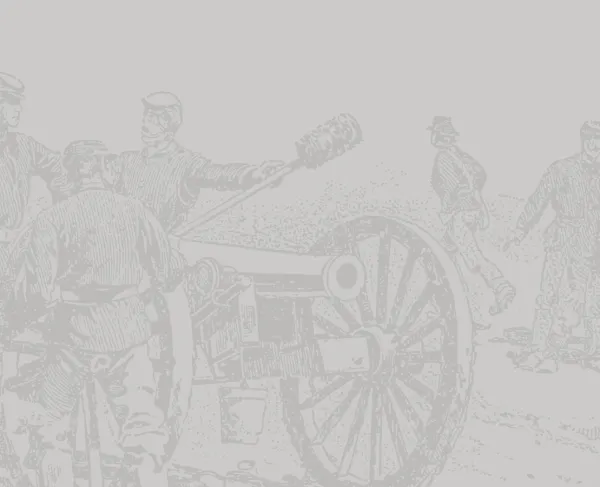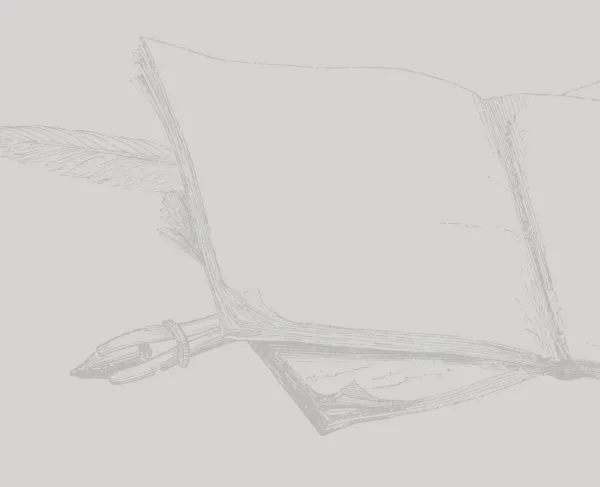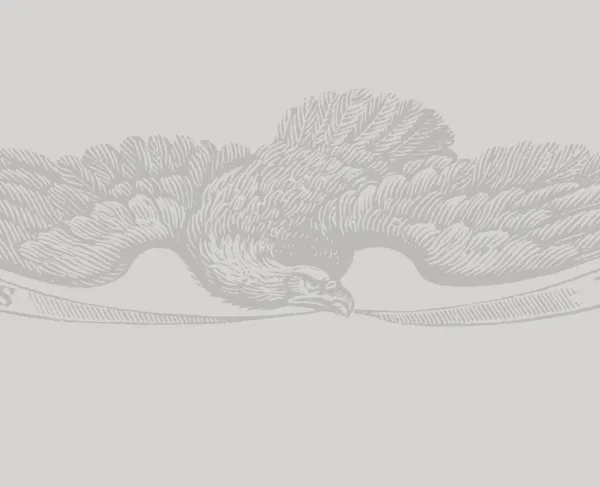Theodore Roosevelt’s Dedication Speech to the New Jersey State Monument at Antietam
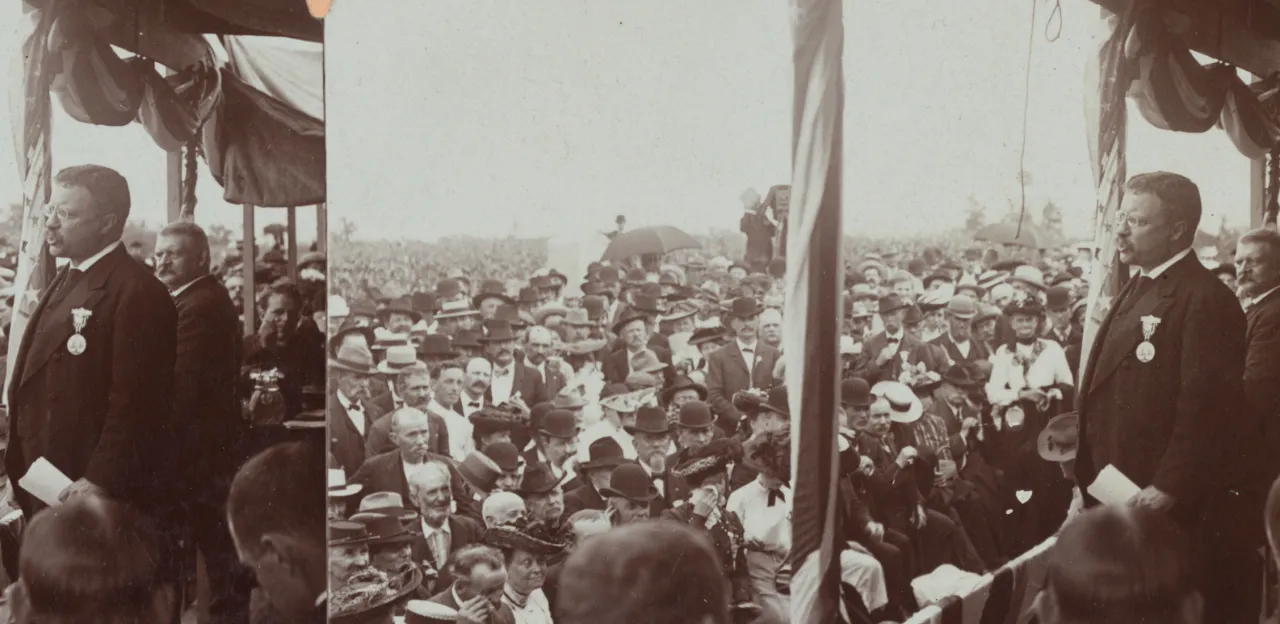
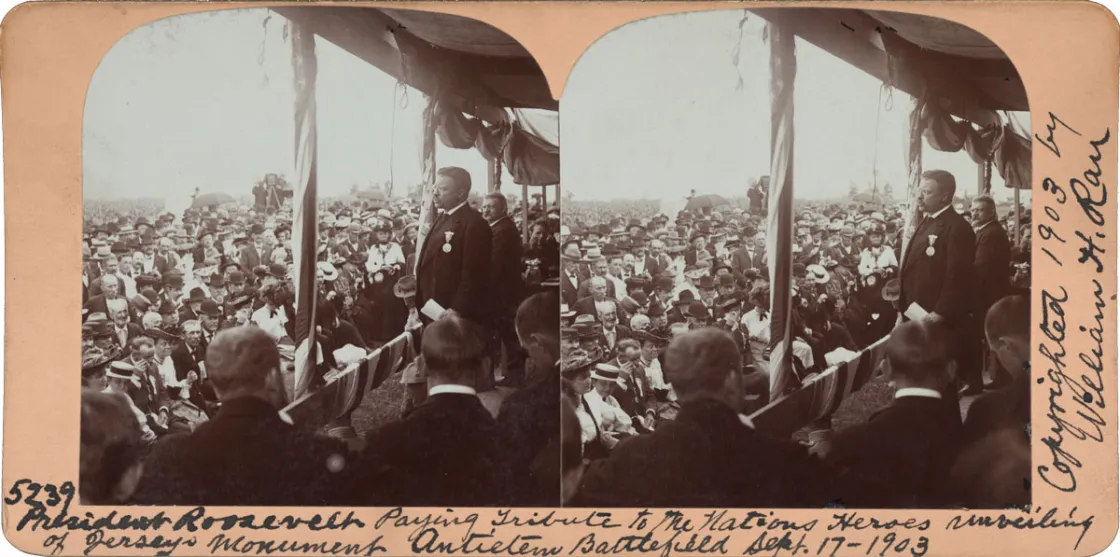
Governor Murphy, Veterans of New Jersey, men of the Grand Army,
I thank you of New Jersey for the monument to the troops of New Jersey who fought at Antietam, and on behalf of the nation I accept the gift. We meet to-day upon one of the great battlefields of the Civil War. No other battle of the Civil War lasting but one day shows as great a percentage of loss as that which occurred here upon the day on which Antietam was fought. Moreover, in its ultimate effects this battle was of momentous and even decisive importance; for when it had ended and Lee had retreated south of the Potomac, Lincoln forthwith published that immortal paper, the preliminary declaration of emancipation; the paper which decided that the Civil War, besides being a war for the preservation of the Union, should be a war for the emancipation of the slave, so that from that time onward the causes of Union and of Freedom of national greatness and individual liberty, were one and the same.
Men of New Jersey, I congratulate your State because she has a right to claim her full share in the honor and glory of that memorable day; and I congratulate you, Governor Murphy, because on that day you had the high good fortune to serve as a lad with credit and honor in one of the five regiments which your State sent to the battle. Four of those regiments, by the way, served in the division commanded by that gallant soldier, Henry W. Slocum, whom we of New York can claim as our own. The other regiment, that in which Governor Murphy served, although practically an entirely new regiment, did work as good as that of any veteran organization upon the field, and suffered a proportional loss. This regiment was at one time ordered to the support of a division commanded by another New York soldier, the gallant General Greene, whose son himself served as a major-general in the war with Spain and is now, as Police Commissioner of New York, rendering as signal service in civil life as he had already rendered in military life.
If the issue as of Antietam had been other than it was, it is probable that at least two great European powers would have recognized the independence of the Confederacy; so that you who fought here forty-one years ago have the profound satisfaction of feeling that you played well your part in one of those crises big with the fate of all mankind. You men of the Grand Army by your victory not only rendered all Americans your debtors forevermore, but you rendered all humanity your debtors. If the Union had been dissolved, if the great edifice built with blood and sweat and tears by mighty Washington and his compeers had gone down in wreck and ruin, the result would have been an incalculable calamity, not only for our people—and most of all for those who, in such event would have seemingly triumphed—but for all mankind. The great American Republic would have become a memory of derision; and the failure of the experiment of self-government by a great people on a great scale would have delighted the heart of every foe of republican institutions. Our country, now so great and so wonderful, would have been split into little jangling rival nationalities, each with a history both bloody and contemptible. It was because you, the men who wear the button of the Grand Army, triumphed in those dark years, that every American now holds his head high, proud in the knowledge that he belongs to a nation whose glorious past and great present will be succeeded by an even mightier future; whereas had you failed we would all of us, North and South, East and West, be now treated by other nations at the best with contemptuous tolerance; at the worst with overbearing insolence.
Moreover, every friend of liberty, every believer in self-government, every idealist who wished to see his ideals take practical shape, wherever he might be in the world, knew that the success of all in which he most believed was bound up with the success of the Union armies in this great struggle. I confidently predict that when the final judgment of history is recorded it will be said that in no other war of which we have written record was it more vitally essential for the welfare of mankind that victory should rest where it finally rested. There have been other wars for individual freedom. There have been other wars for national greatness. But there has never been another war in which the issues at stake were so large, looked at from either standpoint. We take just pride in the great deeds of the men of 1776, but we must keep in mind that the Revolutionary War would have been shorn of well-nigh all its results had the side of union and liberty been defeated in the Civil War. In such case we should merely have added another to the lamentably long list of cases in which peoples have shown that after winning their liberty they are wholly unable to make good use of it.
It now rests with us in civil life to make good by our deeds the deeds which you who wore the blue did in the great years from "61 to '65. The patriotism, the courage, the unflinching resolution, and steadfast endurance of the soldiers whose triumph on was our crowned part by civic at Appomattox must be supplemented on our part by civic courage, civic honesty, cool sanity, and steadfast adherence to the immutable laws of righteousness. You left us a reunited country; reunited in fact as well as in name. You left us the right of brotherhood with your gallant foes who wore the gray; the right to feel pride in their courage and their high fealty to an ideal, even though they warred against the stars in their courses. You left us also the most splendid example of what brotherhood really means; for in your careers you showed in practical fashion that the only safety in our American life lies in spurning the accidental distinctions which sunder one man from another, and in paying homage to each man only because of what he essentially is; in stripping off the husks of occupation, of position, of accident, until the soul stands forth revealed, and we know the man only because of his worth as a man.
There was no patent device for securing victory by force of arms forty years ago; and there is no patent de vice for securing victory for the forces of righteousness in civil life now. In each case the all-important factor was and is the character of the individual man. Good laws in the State, like a good organization in an army, are the expressions of national character. Leaders will be developed in military and in civil life alike; and weapons and tactics change from generation to generation, as methods of achieving good government change in civic affairs; but the fundamental qualities which make for good citizenship do not change any more than the fundamental qualities which make good soldiers. In the long run in the Civil War the thing that counted for more than aught else was the fact that the average American had the fighting edge; had within him the spirit which spurred him on through toil and danger, fatigue and hardship, to the goal of the splendid ultimate triumph. So in achieving good government the fundamental factor must be the character of the average citizen; that average citizen's power of hatred for what is mean and base and unlovely; his fearless scorn of cowardice, and his determination to war unyieldingly against the dark and sordid forces of evil.
The Continental troops who followed Washington were clad in blue and buff, and were armed with clumsy, flint lock muskets. You, who followed Grant, wore the famous old blue uniform, and your weapons had changed as had your uniform; and now the men of the American Army who uphold the honor of the flag in the far tropic lands are yet differently armed and differently clad and differently trained; but the spirit that has driven you all to victory has remained forever unchanged. So it is in civil life. As you did not win in a month or a year, but only after long years of hard and dangerous work, so the fight for governmental honesty and efficiency can be won only by the display of similar patience and similar resolution and power of endurance. We need the same type of character now that was needed by the men who with Washington first inaugurated the system of free popular government, the system of combined liberty and order here on this continent; that was needed by the men who under Lincoln perpetuated the government which had thus been inaugurated in the days of Washington. The qualities essential to good citizenship and to good public service now are in all their essentials exactly the same as in the days when the first Congresses met to provide for the establishment of the Union; as in the days, seventy years later, when the Congresses met which had to provide for its salvation. There are many qualities which we need alike in private citizen and in public man, but three above all, —three for the and lack three are courage, honesty, and common sense.
Click here for the full text of ceremonies.
